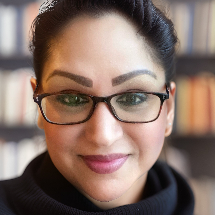Learn / Why Is Alcohol Considered a Drug?
Why Is Alcohol Considered a Drug?


June 26th, 2023| Clinically Reviewed by
In This Article
By definition, alcohol is a drug because it impacts the way your brain works. Not everyone sees it that way, partly because we no longer use alcohol for medical reasons. Today, people drink to celebrate, socialize, and relax. But like any other drug, alcohol can lead to addiction.
Alcohol: What Makes It a Drug?
Alcohol is a psychotropic central nervous system (CNS) depressant.1 Here’s what that means:
- Psychotropic drugs affect the way you think and feel. In other words, alcohol can change your mood, thoughts, and behavior. Other psychotropic drugs include cocaine, marijuana, and nicotine.
- Central nervous system depressants slow down your brain activity. This relaxes your muscles and makes you feel at ease. Other depressants include prescription drugs like Xanax, Valium, and Klonopin.
How Alcohol Affects Your Brain and Body
When you drink, alcohol slows down communication between your brain cells.2 This makes you feel more relaxed as early as 15 minutes after you start drinking. Your unique metabolism determines how long alcohol stays in your system.
For most people, the liver can only process about 1 drink an hour.3 If you drink more than that, you may feel more intense side effects. These can include lower inhibitions, intense emotions, and a loss of muscle coordination. You might even black out—which is when your brain stops recording memories due to binge drinking. If you drink beyond your body’s capacity, you can even get alcohol poisoning.
Alcohol also has long-term effects4 on your brain and body. For example, alcohol is a carcinogen, meaning it causes cancer. Long-term drinking wears down the immune system, which makes you more likely to get sick. According to the CDC, excessive drinking contributes to “high blood pressure, heart disease, stroke, liver disease, and digestive problems.” There’s also a link between alcohol and certain mental health issues, like anxiety and depression.
Alcohol Is Classified as a Depressant
The term “depressant” refers to slowing neural activity,5 not depression as a mental health issue. Certain prescription depressants can even treat anxiety and insomnia. Not every depressant makes you feel depressed.
However, experts point out a link between alcohol and the feeling of sadness.6 According to one study, 1 out of 3 people with alcohol addiction have “experienced episodes of intense depression and/or severe anxiety.” This data suggests that alcohol addiction might indeed cause depression.
Explore Alcohol Treatment Centers
Is Alcohol Addictive?
Alcohol is highly addictive.7 However, not everyone with alcohol use disorder develops physical dependence. To find the right type of treatment, you can learn about the difference between physical and psychological addiction.
Physical Addiction
Drinking releases endorphins8—neurochemicals that make you feel euphoric. The more often and heavily you drink, the more your brain will associate good feelings with drinking. So any time you want to feel good, you’ll start craving alcohol. This cycle can quickly lead to addiction.9
Because alcohol is a depressant, suddenly quitting drinking reactivates your central nervous system.10 This leads to physical withdrawal symptoms which can range from being uncomfortable to life-threatening. For some people, fear of these symptoms becomes a barrier to long-term treatment.
Psychological Addiction
Many people abuse alcohol to self-medicate11 anxiety, trauma, and other mental health conditions. This doesn’t always lead to physical dependence. But if you keep drinking in spite of negative consequences, it can still constitute addiction.
According to the National Institute of Health,12 this strategy doesn’t work in the long term:
“Drinking to cope with stress—while it may provide temporary relief from emotional discomfort—tends to enhance negative emotional states between bouts of alcohol consumption. These changes can motivate further drinking and cause an individual to become stuck in an unhealthy cycle of alcohol consumption.”
Why Is Alcohol Legal in the U.S.?
While alcohol is considered a drug, it still has cultural and economic value in the U.S. In fact, alcohol is a $363.33 billion industry.13 Alcohol was illegal in the U.S. during Prohibition, from 1920-1933.14 But the ban didn’t last long. Illegal alcohol was a public health threat, and creating a black market for drinking didn’t serve the economy. This is similar to the recent change in policy around marijuana legalization. When drugs are legal, the government can regulate them for safety and tax them to boost the economy.
How Alcohol Abuse Affects Your Loved Ones
Alcohol addiction doesn’t only affect you. It can also impact your wider community:
- Drinking takes up time. You might spend long nights away from home, or be too hungover to enjoy other activities with family.
- Alcohol causes conflict. Because alcohol impairs judgment, you might act very differently when you’re drinking. On top of that, abusing alcohol can make you more aggressive.15
- Drinking can damage trust. Many people try to hide their alcohol abuse.16 You might want to avoid consequences at work or protect your loved ones from the truth. If you have high-functioning alcohol addiction, this could go on for some time. But eventually, your loved ones will realize something’s wrong and feel betrayed as a result.
- Alcohol addiction is expensive. Drinking can drain your finances, which puts stress on partnerships and families.
- Alcohol affects your work. Drugs, including alcohol, can make it hard to focus. Being drunk, hungover, or sleep deprived at work might damage your professional relationships. You might even risk losing your job, which could affect your family.
- Drinking can cause legal problems. Alcohol abuse impairs your judgment. If you drive drunk, for example, you could get in an accident or get arrested. Even if no one gets hurt, that can damage your reputation and your closest relationships.
Signs and Symptoms of Alcohol Abuse
If you think you might be addicted to alcohol, it’s important to get a professional diagnosis. As you plan to speak to an expert, take stock of your drinking habits. The Diagnostic and Statistical Manual of Mental Disorders (DSM) defines alcohol addiction17 by a few specific criteria:
- Do you often drink more than you planned to?
- Do you spend excessive amounts of time drinking or recovering from drinking?
- Have you ever tried to quit drinking and failed? Has this happened more than once?
- Have you ever wanted a drink so intensely you couldn’t think about anything else?
- Does drinking or being hungover often interfere with your other responsibilities (family, friends, work, school, etc.)?
- Have you ever given up activities you cared about in order to drink instead?
- Does drinking make you feel depressed, anxious, or otherwise unwell? If so, do you continue to drink anyway?
- Does alcohol have less of an effect on you than it used to? If so, does this make you drink more?
- Do you ever feel shaky, nauseous, or have trouble sleeping when the effects of drinking start to wear off?
When to Seek Professional Help for Alcohol Use
It’s never too early to ask for help. If you think you have alcohol use disorder, you very well might. An addiction expert can help you decide which type of treatment will best suit your needs.
Treatment Options
Everyone’s experience with alcohol addiction is unique. What works for someone else might not be a good fit for you. However, there are a few common treatments for alcohol abuse:
- Alcohol detox: Quitting drinking abruptly can cause potentially dangerous withdrawal symptoms.18 These can even be life-threatening. In a medical detox program, your care team will keep you safe throughout this process. Some rehabs require you to attend medical detox before you start longer-term treatment.
- Residential rehab for alcohol addiction: In these programs, you’ll live on-site at a treatment center. Your length of stay in rehab could be anything from a few days to several weeks, or even longer. Most programs offer a combination of treatments, such as 1:1 therapy, support groups, and medical care.
- Partial hospitalization program (PHP): Also known as day treatment, in a PHP, you’ll live at home but follow an intensive schedule of treatment. Most programs require you to be on-site for about 40 hours per week.
- Intensive outpatient program (IOP): An IOP provides structured, intensive therapy and support services for people who don’t require all-day treatment. Outpatient care is often used as a step-down approach after residential treatment, and could be a good option if you need to keep working or going to school while attending intensive therapy.
- Sober living: Sober living environments help you transition out of residential addiction treatment. You’ll live with other people in recovery, but have plenty of access to the outside world.
Alcohol addiction recovery is an ongoing process. With the right type of care you can detox safely, learn to recognize triggers, and start building a meaningful life without alcohol. To find the right program for you, explore luxury rehabs for alcohol addiction.
Frequently Asked Questions About Alcohol Use
Is alcohol considered a drug?
What are some long-term effects of alcohol?
When should I seek professional help for alcohol use?
-
Costardi JV, Nampo RA, Silva GL, Ribeiro MA, Stella HJ, Stella MB, Malheiros SV. A review on alcohol: from the central action mechanism to chemical dependency. Rev Assoc Med Bras (1992). 2015 Aug;61(4):381-7. doi: 10.1590/1806-9282.61.04.381. PMID: 26466222.
-
Paton A. Alcohol in the body. BMJ. 2005 Jan 8;330(7482):85-7. doi: 10.1136/bmj.330.7482.85. PMID: 15637372; PMCID: PMC543875.
-
“Alcohol Metabolism.” Bowling Green State University, https://www.bgsu.edu/recwell/wellness-connection/alcohol-education/alcohol-metabolism.html. Accessed 30 May 2023.
-
Drinking Too Much Alcohol Can Harm Your Health. Learn the Facts | CDC. 23 Mar. 2023, https://www.cdc.gov/alcohol/fact-sheets/alcohol-use.htm.
-
Https://Www.Cancer.Gov/Publications/Dictionaries/Cancer-Terms/Def/Cns-Depressant. 2 Feb. 2011, https://www.cancer.gov/publications/dictionaries/cancer-terms/def/cns-depressant.
-
Schuckit MA. Alcohol, Anxiety, and Depressive Disorders. Alcohol Health Res World. 1996;20(2):81-85. PMID: 31798156; PMCID: PMC6876499.
-
Littleton J, Little H. Current concepts of ethanol dependence. Addiction. 1994 Nov;89(11):1397-412. doi: 10.1111/j.1360-0443.1994.tb03736.x. PMID: 7841849.
-
Merz, Beverly. “This Is Your Brain on Alcohol.” Harvard Health, 14 July 2017, https://www.health.harvard.edu/blog/this-is-your-brain-on-alcohol-2017071412000.
-
The Cycle of Alcohol Addiction | National Institute on Alcohol Abuse and Alcoholism (NIAAA). https://www.niaaa.nih.gov/publications/cycle-alcohol-addiction. Accessed 30 May 2023.
-
Becker HC. Alcohol dependence, withdrawal, and relapse. Alcohol Res Health. 2008;31(4):348-61. PMID: 23584009; PMCID: PMC3860472.
-
Johnson B. Psychoanalytic treatment of psychological addiction to alcohol (alcohol abuse). Front Psychol. 2011 Dec 2;2:362. doi: 10.3389/fpsyg.2011.00362. PMID: 22144975; PMCID: PMC3229010.
-
The Cycle of Alcohol Addiction | National Institute on Alcohol Abuse and Alcoholism (NIAAA). https://www.niaaa.nih.gov/publications/cycle-alcohol-addiction. Accessed 30 May 2023.
-
America’s Beer, Wine & Spirits Retailers Create 2.03 Million Jobs & $122.63 Billion in Direct Economic Impact – American Beverage Licensees. https://ablusa.org/americas-beer-wine-spirits-retailers-create-2-03-million-jobs-122-63-billion-in-direct-economic-impact/#:~:text=The%20direct%20economic%20impact%20of,economy%20based%20on%20total%20GDP. Accessed 30 May 2023.
-
Prohibition | Definition, History, Eighteenth Amendment, & Repeal | Britannica. 5 May 2023, https://www.britannica.com/event/Prohibition-United-States-history-1920-1933.
-
Beck A, Heinz A. Alcohol-related aggression-social and neurobiological factors. Dtsch Arztebl Int. 2013 Oct;110(42):711-5. doi: 10.3238/arztebl.2013.0711. Epub 2013 Oct 18. PMID: 24223671; PMCID: PMC3820993.
-
Seppä K, Löf K, Sinclair D, Sillanaukee P. Hidden alcohol abuse among women. Br J Psychiatry. 1994 Apr;164(4):544-6. doi: 10.1192/bjp.164.4.544. PMID: 8038946.
-
“Alcohol Use Disorder (AUD).” PsychDB. https://www.psychdb.com/addictions/alcohol/1-use-disorder
-
Kattimani S, Bharadwaj B. Clinical management of alcohol withdrawal: A systematic review. Ind Psychiatry J. 2013 Jul;22(2):100-8. doi: 10.4103/0972-6748.132914. PMID: 25013309; PMCID: PMC4085800.
Return to Resource Library
Our Promise
How Is RehabPath Different?
We believe everyone deserves access to accurate, unbiased information about mental health and addiction. That’s why we have a comprehensive set of treatment providers and don't charge for inclusion. Any center that meets our criteria can list for free. We do not and have never accepted fees for referring someone to a particular center. Providers who advertise with us must be verified by our Research Team and we clearly mark their status as advertisers.


















